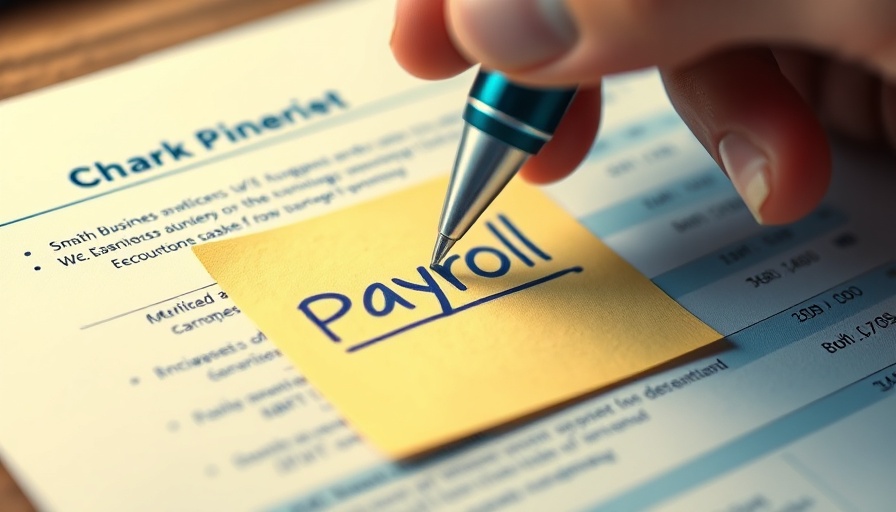
Unlocking Payroll Accounting: A Simplified Overview
For small business owners, navigating payroll accounting can often feel overwhelming. However, understanding its core principles can transform this daunting task into a manageable process. Payroll accounting involves tracking and recording employee compensation, including wages, deductions, taxes, and benefits. Here's what you need to know to streamline your payroll process.
Why Is Payroll Accounting Important?
Payroll accounting is not just a regulatory requirement; it’s a critical aspect of ensuring employee satisfaction and compliance. According to industry insights, an efficient payroll system contributes directly to greater employee engagement and retention. When employees receive their correct compensation on time, it enhances their trust in the organization.
Key Steps in Payroll Accounting
The payroll process can be broken down into several manageable steps:
- Create a Chart of Accounts: Establish accounts for the various employee-related expenses to facilitate accurate tracking.
- Gather Payroll Reports: Collect data on employee hours, wages, and deductions to help in payroll calculations.
- Record Journal Entries: Log all transactions related to payroll to ensure nothing is overlooked.
- Post to the General Ledger: Update the general ledger, which serves as the company's financial backbone.
- Reconcile Data: Regularly check your entries against financial reports to catch any discrepancies.
This systematic approach ensures that you remain compliant with local and federal laws while providing your employees with accurate and timely compensation.
Leveraging Technology to Simplify Payroll
Utilizing accounting software tailored for payroll can significantly reduce manual workload and errors associated with payroll accounting. Such technologies can automate calculations for gross pay and deductions, ensuring that you focus more on growing your business rather than getting lost in numbers.
Future Considerations for Payroll Accounting
As businesses evolve, so does the landscape of payroll. With the rise of remote work and multiple state regulations, staying informed about the latest payroll accounting practices and software can set your business apart. Consider integrating a payroll software that can adapt to the changing landscape, ensuring compliance and improving employee satisfaction.
Employing this structured approach to payroll accounting not only eliminates stress but empowers you to build a more robust and engaged workforce. It's time to embrace these best practices and watch your business thrive.
 Add Row
Add Row  Add
Add 




Write A Comment